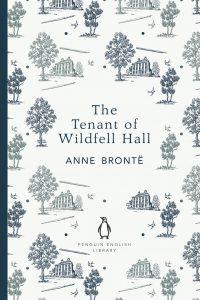“To J. Halford, Esq. Dear Halford, When we were together last, you gave me a very particular and interesting account of the most remarkable occurrences of your early life, previous to our acquaintance; and then you requested a return of confidence from me.”
One of the first feminist novels ever written.
The Tenant of Wildfell Hall was Anne Brontë’s second and last novel. Published in 1848, two years after the moderate success of Agnes Grey. It was realised under the pseudonym ‘Acton Bell’ to disguise the fact she was a woman. It was an instant success and shocked the nation.
The novel caused an outcry when it was first released. The secondary main character defies all conventions of the 19th century, not to mind breaking the law itself, despite her good reasons for doing so.
Summary
The story is told as a series of letters from Gilbert Markham to his friend Jack Halford. In these tales, he recalls the series of events in his life that led to him meeting the elusive Helen Graham. Mysterious and reserved, she suddenly appears in an empty old mansion with her young son and no husband. Her reclusiveness, unpopular opinions, and artist career choice make her a social outcast. However, Gilbert quickly realises that not everything’s as it seems. As he begins to unravel her cryptic past, her actions become more and more justified. Gilbert begins to fall in love with this enigmatic woman and her son, but the past doesn’t always stay dead and he’s about to learn that the hard way.
Commentary
The Tenant of Wildfell Hall changed the laws surrounding mother and child custody forever.
Praise
- It altered how Victorian society saw women who left their husbands. Before this novel, if a wife walked out on her family she would be ostracised from society. Brontë’s novel was the first-ever book to show this as a perfectly acceptable situation. Without this radical change, custody laws today wouldn’t exist.
- Helen is one of the greatest female characters ever written. She’s stubborn and independent, and stronger than nearly every female protagonist of her time. She’s a role model, both to Victorian women and to young girls today.
- Brontë uses straight forward and direct language. There are no unnecessary descriptions or flowery poetic phrases used. It’s realistic and striking and makes the story easier and more enjoyable to read.
Critique
- The novel sets up the perfect healthy relationship between Helen and Gilbert but then doesn’t follow through. The story focuses on her life before meeting Gilbert, and afterwards, there are very few interactions shown between her and Gilbert. After reading the entire book, it’s somewhat disappointing.
- Towards the middle/end of the book, everything slows down. Gilbert transcripts Helen’s entire diary in his letters to Jack. It’s dull, not very interesting, and rather bittersweet as Helen’s backstory takes over. But despite this, the story does pick up again towards the end, so don’t give up!
- I’m struggling to come up with a final criticism about this book, so let’s just say that it’s not a happy story. There are alcoholics, abusive husbands, cheating, gambling and drugs. Helen is forced to fight her way out of this horrible situation, and it isn’t nice to read about.
Recommendations
Overall, I’d give Anne Brontë’s The Tenant of Wildfell Hall five out of five. It’s an incredible novel that set the stage for law amendments and women’s rights that otherwise might never have been formed.
I’d recommend this novel to absolutely everyone, whether you enjoy classics or Jane Austen styled romance or not. It’s an educational story but also entertaining and bittersweet, and will make you cry, laugh, and rant in turn

Want to read it for yourself?
Prefer to listen instead?
